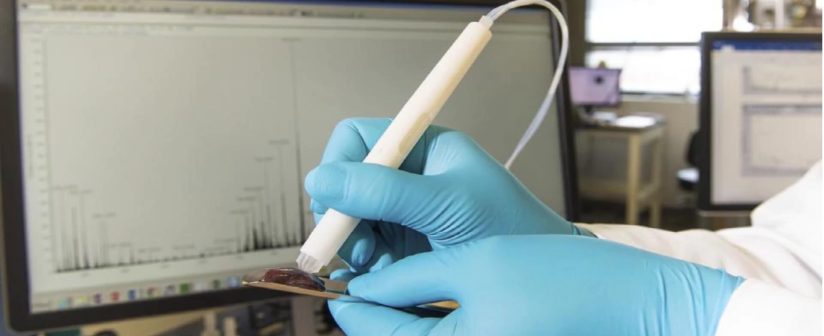Scientists at the University of Texas say they have invented a handheld tool can identify cancerous tissue in 10 seconds.
They say, the new “MasSpec Pen” speeds the testing process by as much as 150 times and should make the surgery to remove a tumour more accurate.
“If you talk to cancer patients after surgery, one of the first things many will say is ‘I hope the surgeon got all the cancer out,’ ” said Livia Schiavinato Eberlin, an assistant professor of chemistry at UT Austin who designed the study and led the team.
“It’s just heartbreaking when that’s not the case. But our technology could vastly improve the odds that surgeons really do remove every last trace of cancer during surgery,” Eberlin added on the university’s website on Wednesday.
The study’s abstract said tests taken from 253 human cancer patients took about 10 seconds and were shown to be accurate 96 percent of the time.
The tests included tissue related to breast, lung, thyroid and ovarian cancers.
How the MasSpec pen works
The pen releases a tiny droplet of water after it is touched onto a suspected cancer cell. Chemicals inside the living cells are sucked back into the pen after moving into the droplet.
Once the pen is plugged into it, a mass spectrometer is used to measure the mass of thousands of chemicals every second.
A chemical fingerprint is produced which tells doctors whether it’s a healthy tissue or cancer.
The challenge faced by surgeons is to determine the border between the normal tissue and the cancer but the boundary between a diseased and healthy tissue can be blurred in some tumours.
However, the pen can help doctors ensure that the cancer is not left behind.
There is a complication while removing the tissues because if too little is removed then the cancerous cells can grow into another tumour and if too much is taken then there is a chance of damaging the brain.
“What’s exciting about this technology is how clearly it meets a clinical need.
The tool is elegant and simple and can be in the hands of surgeons in a short time,” said Livia Eberlin, an assistant professor of chemistry at the University of Texas, Austin while talking to BBC.
Trials
The technology has been tested on 253 samples as part of the study. The plan is to continue testing to refine the device before trialling it during operations next year.
The pen currently analyses a patch of tissue 1.5mm (0.06in) across, but the researchers have already developed pens that are even more refined and should be able to look at a finer patch of tissue just 0.6mm across.
While the pen itself is cheap, the mass spectrometer is expensive and bulky.
Dr Eberlin said: “The roadblock is the mass spectrometer, for sure.
“We’re visioning a mass spectrometer that’s a little smaller, cheaper and tailored for this application that can be wheeled in and out of rooms.”
Dr James Suliburk, one of the researchers and the head of endocrine surgery at Baylor College of Medicine, said: “Any time we can offer the patient a more precise surgery, a quicker surgery or a safer surgery, that’s something we want to do.
“This technology does all three.”
The MasSpec Pen is the latest attempt to improve the accuracy of surgery.
A team at Imperial College London have developed a knife that “smells” the tissue it cuts to determine whether it is removing cancer.
And a team at Harvard are using lasers to analyse how much of a brain cancer to remove.
Dr Aine McCarthy, from Cancer Research UK, said: “Exciting research like this has the potential to speed up how quickly doctors can determine if a tumour is cancerous or not and learn about its characteristics.
“Gathering this kind of information quickly during surgery could help doctors match the best treatment options for patients sooner.”
Sources:


